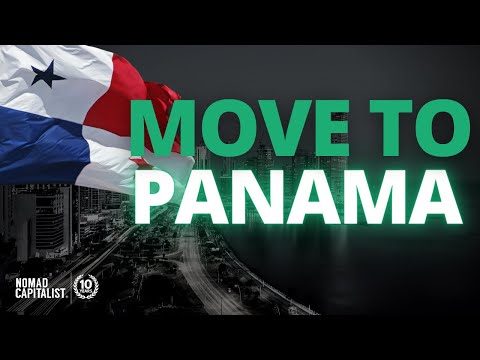Five Low-Tax Countries in Latin America
8 min readIt’s hard to put a value on personal freedom.
Perhaps that’s why so many people love Latin America’s lifestyle and vibe. With its proximity to North America and shared experiences, the personal freedoms on offer in Latin America are in increasingly stark contrast to the government overreach that has come to characterise its northern neighbour.
What has been described as the contagious happiness of the people is evident in their love for life, music and dance. A carnival of colour, a rich and vibrant culture and vast natural beauty greet newcomers with stunning effect.
If you’re looking to optimise both lifestyle and taxes and go where you’re treated best, then read on as we discuss five low-tax countries in Latin America worth considering.
Discover Low-Tax Latin America
Wherever you go in the world, you’ll need a plan to optimise your taxes. One of the misconceptions about moving offshore is that just because you’re going to relocate to a high-tax country, you’ll need to pay higher taxes.
What’s interesting about a number of the territorial tax countries in Latin America – where tax residents can avoid paying tax on their worldwide income – is their more lenient version of the tax residence standards found in Europe.
Many European countries will tax you because you have an apartment, a car or a doctor, even if you spend less than 183 days there. That’s because you demonstrate a close connection with the country, even if you pass the physical presence test examining whether you should considered a tax non-resident.
However, it is much more black and white in most Latin American countries – if you spend six months there, they will tax you. If you don’t, they won’t. As a result, you can live in many Latin American countries as part of our trifecta method and spend four months in three different counties without triggering tax residence.
You can do that by obtaining residence permits that offer the ability to live there but don’t require you to pay tax. So, pretty much any country in Latin America can be tax-free, depending on how you set up your affairs and how much time you spend there each year.
Territorial Tax Countries in Latin America
Another option is becoming a tax resident in a territorial tax country. There are a lot of good residence programmes in Latin America in territorial tax countries where your income from overseas is not taxed, but anything you earn locally is taxed.
For people with offshore businesses and investments, this can work well and you can experience little or no tax liability. There is an issue whereby you could be taxed if you are running a business and managing it from that country without having an overseas staff. Generally speaking, though, you will have a lot of flexibility to lower your taxes in countries with a territorial tax system.
Latin America is also a good option if you want to leave your home country and not settle in one place but prefer to travel and have multiple bases while maintaining a tax-friendly set-up.
It’s becoming increasingly difficult for people who want to live a nomadic lifestyle to have a tax residency in a country that does not require physical presence – or at least months of physical presence.
There is always a trade-off between spending six months or more in a place and becoming a tax resident that way or investing, donating or paying a flat tax. That trade-off is always between money and time when it comes to obtaining a tax residence. Not many countries offer a tax residence scheme that will give you the freedom of travel, but you still find countries in Latin America that do.
1. Costa Rica
Costa Rica has a territorial tax code that only taxes income earned within the territory. Foreign-sourced income is tax-free. In terms of corporate tax, offshore transactions are not considered local income and are not subject to local taxes. However, the tax rates vary based on how much you make, ranging from 5% to 30% if you decide to operate a business within the country.
On domestically-sourced income, you will pay progressive income tax rates that range from 0% to 25%. The top rate applies to income equivalent to approximately US$26,000. Anyone employed in Costa Rica is also subject to a progressive monthly withholding tax based on their salary, to a maximum of 15%.
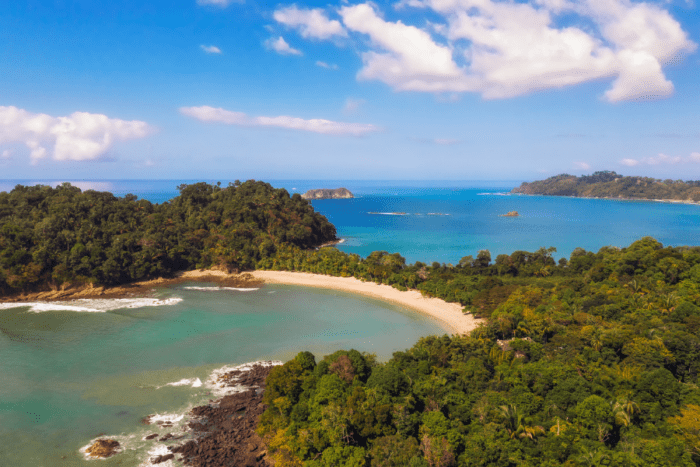
Costa Rica’s passport offers visa-free travel to 142 countries, including nations like Singapore, the UK, UAE and all of the European Union, based on analysis in our Nomad Capitalist Passport Index. However, you will require a visa to access the US and Australia.
To become a resident there – if marriage or family ties aren’t an option – you can obtain a temporary residence permit which is valid for two years. After that period, you can apply for permanent residency.
You must demonstrate a monthly income of at least US$2,500 per month for at least two years or deposit US$60,000 in an approved bank.
Another option is to invest in Costa Rican property worth US$200,000 or more. Recently, there have been suggestions that Costa Rica could change from a territorial to a worldwide tax system, but to date nothing has changed.
2. Panama
Panama is an excellent option for expats because they only pay tax on income sourced within its borders. This means your foreign-earned income is exempt from tax and is not even reportable to the Panamanian tax authority.
There are no wealth, inheritance, estate or gift taxes in Panama. Locally sourced income is taxable for both residents and non-residents, with personal income tax rates ranging between zero and 25%, depending on how much you earn.
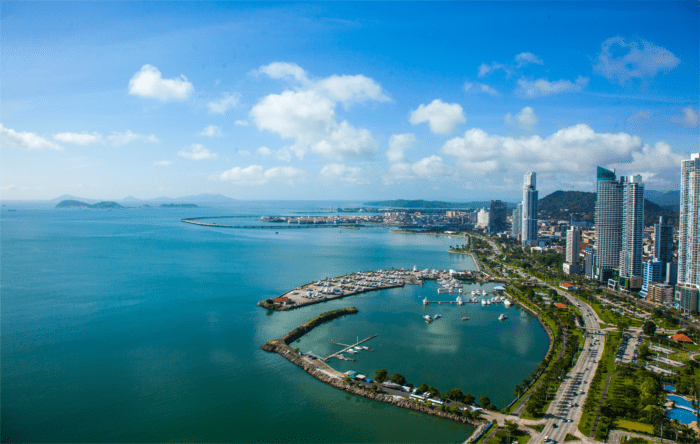
Panama corporations have a fixed income tax rate of 25%. However, if you own a foreign company while being a resident of Panama, it will not be subject to taxation there. A Panama International Company (IBC) that operates overseas will also be taxed at 0% if there is no substance locally.
In short, Panama can be a very tax-friendly place to go, but some basic tax planning is required, depending on where your company is set up. If you are interested in Panama, you can investigate how to go about getting residency by watching this video.
3. Uruguay
One of the reasons that Uruguay is regarded as a tax haven is that it offers a tax-free window. This window is a tax reduction incentive under which your entire foreign income is not taxable for a period of 10 years. When that period finishes, Uruguay will tax you on two types of foreign income – foreign dividends and interest – at a 12% tax rate. Alternatively, you can waive the tax-window period and pay only 7% interest on foreign-earned income for an unlimited period.
The country offers something unique in terms of tax-friendliness – Uruguay will accept that you have paid tax on foreign income overseas. That’s even if you’re from a country with which it does not have a double-taxation treaty. It unilaterally accepts that you have paid taxes in another country.
So, while tax on dividends and interest is paid in Uruguay if you waive the window period, Uruguay respects the tax credit paid overseas. To get these personal tax advantages, you must first become a resident.
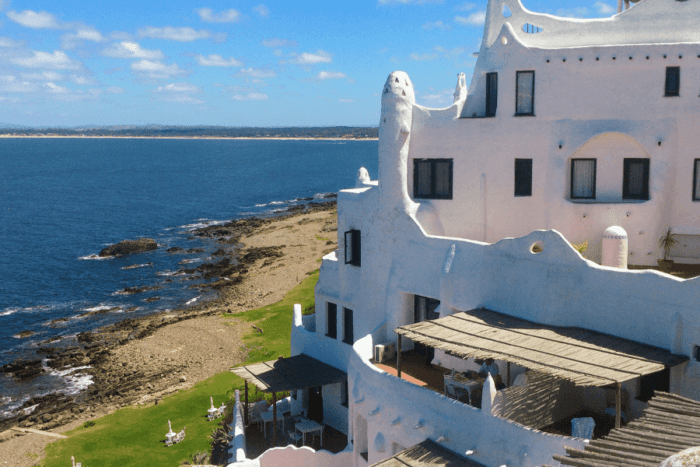
One of the most attractive ways of doing this is through the independent-means visa, under which you must demonstrate you have sufficient funds to live there. A monthly income of US$1,500 is generally accepted. Approval can take up to six months and, during that time, you have to be in Uruguay.
The country’s attitude to tax is because it understands the value of foreign investment and is a relatively straightforward tax residence that can be obtained through investment. Besides having to spend 183 days living there a year, Uruguay allows you to become a tax resident if you invest US$460,000 in property. Once you receive a tax residence certificate, you only have to live there for 60 days a year.
4. Mexico
Mexico is one of the best countries in the region for people from North America to have a soft landing in cultural terms. Mexico offers something unique to these travellers – personal freedom and a lower cost of living.
Technically speaking, it has a tax system based on residence, but in effect, it’s a worldwide tax system.
However, the rules can be less stringently applied to foreigners with no Mexican-sourced income so Mexico could potentially be a tax-friendly place. It is not, however, a zero-tax or even a low-tax country, so you will need to put proper planning in place.
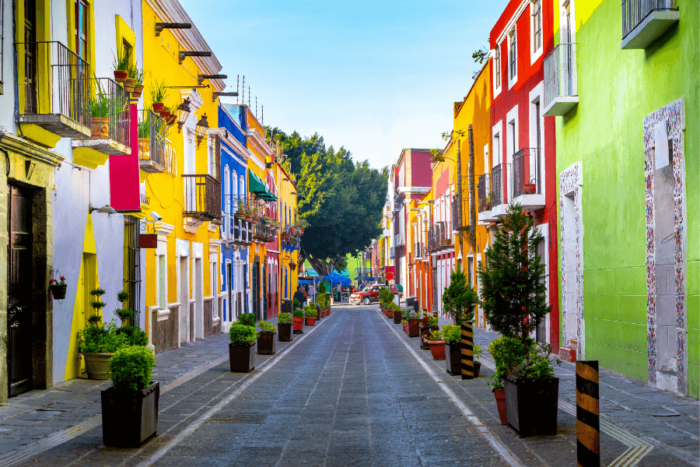
There are no tax exemptions in Mexico – it is not officially a territorial tax country that leaves your foreign-source income alone. Instead, it’s a country that taxes people who live there, but the standards of how the tax rules are applied and enforced for foreigners are a little murky so there may be ways you can live there and enjoy low taxes, at least for a while.
5. Paraguay
If you’re from a country that doesn’t require a visa to enter Paraguay or requires a visa upon arrival, such as the US, Canada, Australia or New Zealand, you can get permanent residence by depositing US$4,500 into a Paraguayan bank account. You can withdraw this deposit after obtaining permanent residency.
You are then required to stay there for five days, during which time your application is processed. Once approved, Paraguay’s Immigration Directorate will issue the permanent residence permit card in 70 to 90 days.
For Paraguay, once you obtain your ID, you can obtain documents proving you’re a fiscal resident. You will still have to spend 120 days there. Since Paraguay has a territorial tax system, all income sourced outside the territory will not be taxed. Most people register as tax residents when they get a residence permit and it’s recommended that you file a ‘no tax due’ return in Paraguay in order to ensure the maximum benefit.
Pay Lower Tax in Latin America
Unlike similarly taxed places in Asia, the requirements to get into Latin America are relatively low. Meeting them can be as simple as making a small investment, buying an affordable property or showing you have money available.
We’ve seen Latin American countries become more stringent on physical presence requirements to renew residence permits and work towards citizenship. That said, if you want to combine tax-friendliness with a low barrier to entry, Latin America offers a pathway to citizenship that many places in Asia don’t have.
Again, as previously discussed, you could simply avoid tax residence by spending minimal time in one of these Latin American countries, safe in the knowledge that if you spend less than 183 days there, you’ll be left alone.
Alternatively, you can plan to become a tax resident and enjoy low taxes by having your foreign-earned income excluded from tax and structuring your companies to minimise taxes.
If you’re willing to invest a relatively small amount, you can also have a low physical presence requirement in places like Uruguay and Paraguay.
Whatever you decide, it will take planning.
That’s where Nomad Capitalist comes in. We help high-net-worth individuals create a bespoke strategy using our uniquely successful methods. You’ll keep more of your own money, create new wealth faster and be protected from whatever happens in just three steps. Discover how we do things here.
